Series Collaborating Across Disciplines: Cross-Discipline Socratic Seminar: Refining Essays
ELA.SL.9-10.1a
| Common core State Standards
- ELA: English Language Arts
- SL: Speaking and Listening Standards 6-\x80\x9312
- 9-10: 9th & 10th Grades
-
1a:
Initiate and participate effectively in a range of collaborative discussions
(one-on-one, in groups, and teacher-led) with diverse partners on grades 9-\x80\x9310
topics, texts, and issues, building on others'\x80\x99 ideas and expressing their own
clearly and persuasively.
a. Come to discussions prepared, having read and researched material under
study; explicitly draw on that preparation by referring to evidence from
texts and other research on the topic or issue to stimulate a thoughtful,
well-reasoned exchange of ideas.
b. Work with peers to set rules for collegial discussions and decision-making
(e.g., informal consensus, taking votes on key issues, presentation of
alternate views), clear goals and deadlines, and individual roles as needed.
c. Propel conversations by posing and responding to questions that relate the
current discussion to broader themes or larger ideas; actively incorporate
others into the discussion; and clarify, verify, or challenge ideas and
conclusions.
d. Respond thoughtfully to diverse perspectives, summarize points of
agreement and disagreement, and, when warranted, qualify or justify their
own views and understanding and make new connections in light of the
evidence and reasoning presented.
ELA.SL.9-10.4
Common core State Standards
- ELA: English Language Arts
- SL: Speaking and Listening Standards 6-\x80\x9312
- 9-10: 9th & 10th Grades
-
4:
Present information, findings, and supporting evidence clearly, concisely,
and logically such that listeners can follow the line of reasoning and the
organization, development, substance, and style are appropriate to purpose,
audience, and task.
Save to My Resources
PLEASE CREATE A NEW ACCOUNT OR LOG IN TO ACCESS THIS CONTENT
Enjoy your first video for free. Subscribe for unlimited access.
Have questions about subscribing?
Click Here to learn more about individual subscriptions.
Click Here to learn more about School and Institution access.
Discussion and Supporting Materials
Thought starters
- How did students prepare for the Socratic Seminar?
- What learning targets do Ms. Gilrein and Ms. Wolfe have students focus on?
- How will this discussion help students to refine their essays?
School Details
School 7 Oceanside Senior High School3160 Skillman Avenue
Oceanside NY 11572
Population: 1752
Data Provided By:

Teachers
Erin Gilrein
Jennifer Wolfe
Newest
|
4 MIN
|
5 MIN
|
5 MIN
UNCUT CLASSROOMS
| TCHERS' VOICE
English Language Arts
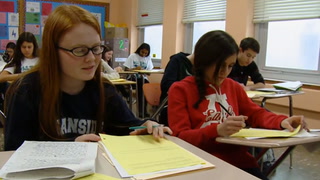
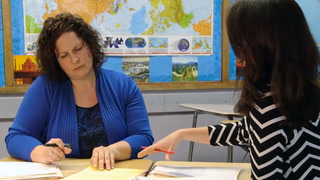
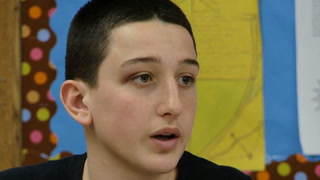
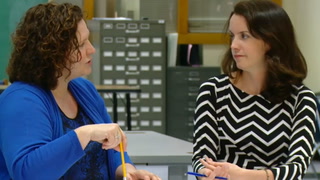
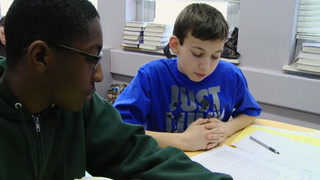








13 Comments
Dr. MARIE MCMARROW May 7, 2017 10:21am
Tayari Kuanda Jun 12, 2016 6:43am
Adam Hopson Mar 8, 2016 7:27pm
Carrie Trecek Feb 27, 2016 10:29am
Paul Oh Oct 26, 2015 4:54pm